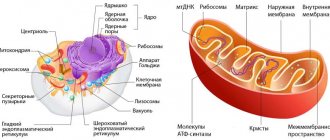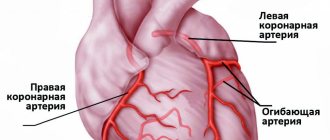A calcitonin blood test is a type of clinical examination designed to determine the presence of medullary thyroid cancer, and not when calcium in the blood is low or high. Calcitonin itself is a hormone of the C-cells of the thyroid gland, which is involved in the regulation of calcium metabolism.
Scientists relatively recently began to study its features, which is explained by its rather late discovery. Only in the middle of the last century did scientific researchers come to the conclusion that this hormone is responsible for maintaining calcium at the proper level.
The main functional responsibility of calcitocin is that it is a marker of a rare but extremely aggressive thyroid cancer, medullary carcinoma, which originates from C cells.
Detailed description of the study
Calcitonin is a hormone produced by the C cells of the thyroid gland. Its main function is to regulate mineral metabolism in the body.
Maintaining calcium levels within physiological limits is achieved through a balance between its absorption in the intestines, deposition in the bones and excretion from the body. The balance of these processes is provided by many hormones. The role of calcitonin is to prevent excessive increases in calcium concentration in the blood. This hormone acts on cells that destroy bone tissue (osteoclasts), slowing down the process of bone resorption.
Calcitonin receptors are found in many other organs, including the brain, kidneys and intestines. Secretion of the hormone occurs in response to an increase in calcium concentration in the blood. Its secretion is also stimulated by excess production of gastrointestinal hormones such as gastrin.
A change in calcitonin levels is observed in primary osteoporosis, which develops as an independent disease and is not associated with other pathology. Another reason for the increase in its concentration is medullary thyroid cancer. This is a fairly rare cancer that usually develops as part of a hereditary syndrome called multiple endocrine neoplasia. With this pathology, damage to the adrenal glands and other glands is observed.
Medullary thyroid cancer is often asymptomatic until the tumor spreads to other organs, that is, metastases appear. Its detection occurs accidentally during an ultrasound examination, where the node is visualized. As the disease progresses, a person may notice an enlargement of the lymph nodes in the neck, problems swallowing food, and hoarseness due to compression of the lumen of the esophagus, trachea, and nerves and vessels of the neck by the tumor.
Assessment of calcitonin levels is an important indicator in the diagnosis of medullary thyroid cancer, osteoporosis, in conjunction with other indicators of mineral metabolism in the body. Rarely, changes in calcitonin concentration may be observed in tumors of other locations.
Preparatory stage
In order for the result to be true, you will have to carefully prepare. Despite the fact that the basis for the study is not the blood itself, but plasma after its separation from other particles, this does not exclude the need to adhere to several rules.
From a medical point of view, preparation involves drawing blood using standard methods and then freezing it for successful transportation to the laboratory. If storage or transportation conditions were violated, this will significantly affect the overall reliability of the information. The list of tips on how to prepare includes several important points:
- do not eat food eight hours before the expected examination;
- avoid any physical activity on the eve of the procedure;
- avoid stressful situations.
There are a number of factors influencing the results of the study:
- taking calcium supplements;
- circadian rhythms (calcitonin concentration increases towards noon);
- exercise stress.
Best materials of the month
- Coronaviruses: SARS-CoV-2 (COVID-19)
- Antibiotics for the prevention and treatment of COVID-19: how effective are they?
- The most common "office" diseases
- Does vodka kill coronavirus?
- How to stay alive on our roads?
Due to the individual physiological characteristics of the body, as well as insufficient skills of the laboratory assistant, the patient may experience bruises at the puncture site after the manipulation. But this is quite a common phenomenon, as is the burning sensation during blood sampling along with pressure on the vessel. All inconveniences go away on their own after a couple of days.
References
- Osteoporosis. Clinical recommendations. — Russian Association of Endocrinologists, 2021. — 107 p.
- Felsenfeld, A., Levine, B. Calcitonin, the forgotten hormone: does it deserve to be forgotten. - Clin Kidney J., 2015. - Vol 8(2). — P. 108-187.
- Danila, R., Livadariu, R., Branisteanu, D. CALCITONIN REVISITED IN 2021. - ActaEndocrinol (Buchar), 2021. - Vol. 15(4). — P. 544-548.
- Toledo, S., Lourenço, D., Santos, M. et al. Hypercalcitoninemia is not pathognomonic of medullary thyroid carcinoma. - Clinics (Sao Paulo), 2009. - Vol. 64(7). — P. 699-706.
Blood test for calcitonin
Blood calcitonin is now determined by various laboratories using equipment of various classes to study the level of this indicator. The most modern analyzers, which give the calcitonin analysis maximum accuracy, are 3rd generation immunochemiluminescent analyzers. Widespread and cheap to operate and handle, 2nd generation enzyme immunoassay analyzers provide a significant error in determining the level of calcitonin in the blood, which can lead to incorrect actions both at the stage of examining the patient and at the stage of his treatment. That is why, if during a blood test, calcitonin is the main indicator you are interested in, ask the laboratory what method is used to perform the analysis.
The laboratory of the North-Western Endocrinology Center performs a blood test for calcitonin using an automatic 3rd generation immunochemiluminescent analyzer Liaison XL manufactured by DiaSorin (Italy)
– one of the world's largest manufacturers of equipment for studying blood hormone levels. The accuracy of calcitonin testing using the high-tech 3rd generation method is so high that it often eliminates the errors of tests performed by other laboratories using less modern methods. Very often, patients who have elevated blood calcitonin turn to the North-Western Endocrinology Center - and often a simple double-check of the results using precision equipment makes it possible to find out that in fact the hormone is within normal limits.
| Automatic immunochemiluminescent analyzer 3rd generation DiaSorin Liaison XL (Italy) | 3rd generation chemiluminescent immunoassay analyzer for determining blood calcitonin levels with maximum accuracy |
Why is calcitonin so interesting to endocrinologists and endocrinologist surgeons? The fact is that from the C-cells that produce this hormone, a very dangerous malignant tumor of the thyroid gland grows, which is called medullary cancer or C-cell carcinoma. Medullary cancer grows slowly (this is perhaps its only positive quality), but extremely stubbornly - it is not “afraid” of chemotherapy, with the exception of some drugs from the group of kinase inhibitors, and also does not accumulate radioactive iodine at all and does not respond to external beam radiation therapy. Medullary cancer actively metastasizes to the lymph nodes of the neck, mediastinum, and also spreads its metastases through the blood to the lungs, bones, liver, and brain. Early and timely surgery is the main thing that can bring victory over medullary cancer.
Due to the fact that C-cells, which are the basis for the growth of this type of cancer, produce the hormone calcitonin, its concentration in the blood increases sharply. It is this indicator that is used for the early diagnosis of medullary thyroid cancer. Calcitonin is a method that, if used correctly, can save thousands of human lives.
Currently, about 100-150 cases of medullary thyroid cancer are detected annually in Russia. Not long ago, summary data on the diagnosis of medullary cancer in 16 large and densely populated regions of the European part of Russia were published. Overall data showed that about 40 cases of medullary cancer are detected annually in this vast region. You may be surprised, but in 2013 alone, specialists from the Northwestern Endocrinology Center identified and treated 38 patients with medullary thyroid cancer
. It turns out that one center, albeit a large one, detects as many cases of C-cell cancer per year as 16 regions of our country - and the reason for this lies not only in knowledge of the intricacies of diagnosing this tumor, but also in the competent and active use of calcitonin as a tumor marker.
It should be noted that at present, almost all deaths of patients suffering from various forms of thyroid cancer are caused by medullary or anaplastic cancer. And if we still do not have an effective treatment for anaplastic cancer, medullary cancer is completely curable - and a blood test for calcitonin is designed to help with this.
After lengthy debate, in 2012 the European Thyroid Association in its recommendations indicated the need for a single calcitonin test for all patients with thyroid nodules. The test does not need to be done annually - if the first test shows that the hormone level is not elevated, the next test should be performed only if new nodes appear that were not previously recorded.
Large international studies have shown that when calcitonin levels are determined in all patients with thyroid nodules, previously unsuspected medullary cancer is detected in 1 case out of 300
. In this regard, the European endocrine community is inclined to believe that spending 299 times the money on analysis (and insurance companies pay for the examination there, not the patients themselves) is quite reasonable if, as a result, one patient is diagnosed with cancer at an early stage, when it is still can be cured. By the way, the American Thyroid Association has not yet supported this opinion - in the USA it is believed that such spending of money is unwise (we are talking about the economic efficiency of the method, not about its clinical significance and usefulness - no one has any doubts about this).
Calcitonin is normal
When testing blood for calcitonin and assessing the results of this analysis, it should be remembered that there is no lower limit of normal for this hormone
. If its level in the blood is zero, this is also normal. It is important that it does not rise above those limits that are designated as the upper limit of normal for this particular analyzer and this particular set of reagents.
It doesn’t make much sense to indicate any specific norm for calcitonin here, since laboratories now use very diverse models of analyzers - this leads to the fact that the concept of norm in this case should not even be discussed. When you take a calcitonin test in a high-quality modern laboratory, the norm will be indicated on the same form - this rule is followed very strictly by good laboratories.
Where to go if calcitonin is elevated?
We encourage all patients whose blood analysis has revealed high calcitonin to contact the clinics of the North-Western Endocrinology Center
, who has the greatest experience in Russia in the treatment of medullary thyroid cancer. Specialists at the Northwestern Center will conduct clarifying studies and either reasonably exclude the diagnosis of C-cell cancer, or confirm it and perform surgery on you using the most modern technologies.
It should be noted that thyroid operations for residents of Russian regions are performed free of charge by the North-Western Endocrinology Center, within the framework of the federal quota program, or under a compulsory health insurance policy.
So, if your calcitonin is elevated, we are waiting for you
. Do not put off the examination for the future, it can be dangerous.
Functions of calcitonin
Calcitonin can be synthesized not only in the thyroid gland, but also in the thymus and lungs. The hormone has a complex structure and consists of a chain of amino acids.
Ostaza (bone alkaline phosphatase) in Moscow from 2 days
from 1520 ₽
Sign up
Parathyroid hormone (parathyroid hormone), intact in Moscow from day 1
from 650 ₽
Sign up
Calcitonin in Moscow from 1 weekday
from 990 ₽
Sign up
Functions and indicators of calcitonin:
- Regulation of calcium levels - prevents the leaching of calcium from the body, maintains skeletal density. Considered together with parathyroid hormone, which is produced in the parathyroid glands and stimulates bone cells (osteoclasts) to be released into the blood. Calcitonin acts inversely to this process - it regulates calcium metabolism and maintains bone density.
- Tumor marker - if the level of this hormone in the presence of nodes in the thyroid gland exceeds 100 pg/ml, we can talk about the development of medullary carcinoma.
Important! Early diagnosis of this disease makes it possible to stop the development of the pathological process and prevent the occurrence of metastases.
When should you check your calcitonin levels?
Clinical recommendations for testing are the presence of nodules in the thyroid gland. According to statistics, out of 300 patients with nodules, only one is diagnosed with medullary carcinoma.
If there is confirmed cancer in the thyroid gland, a calcitonin test should be taken every 3-6 months.
It is also recommended to get tested if you have the following problems:
- Signs of osteoporosis are skeletal deformation, multiple fractures, bone pain. The analysis will assess calcium metabolism disorders.
- Hypoparathyroidism - if the level of parathyroid hormone decreases, the concentration of calcium also decreases, therefore, phosphates in the blood increase.
- Suspicion of multiple endocrine neoplasia syndrome - in this case, the analysis will help to exclude or confirm the presence of tumors of several glands and genetic autosomal dominant syndrome.
It is also recommended to check the concentration of calcitonin if there are symptoms of hidden pathological processes:
- constant fatigue and weakness;
- apathetic state;
- enlarged lymph nodes and growth of nodes in the thyroid gland;
- lethargy;
- weight loss for no reason;
- dryness and pallor of the skin;
- hair loss and brittle nails;
- loss of performance;
- memory impairment;
- discomfort in the thyroid gland.
An endocrinologist may prescribe a calcitonin test to a patient:
- if the development of neoplasms is suspected;
- impaired absorption of phosphorus and calcium;
- the size of nodules in the thyroid gland is more than 1 cm;
- osteoporosis;
- to assess the condition of the kidneys, stomach and mammary glands;
- monitoring the dynamics after tumor removal;
- prophylaxis in patients who are predisposed to medullary tumors.
Endocrinologists recommend taking a calcitonin test on a regular basis in conjunction with an annual preventive examination. The cost of the study is low, so including it on the list of required ones will not be difficult.
Preparing for the study
For analysis, blood is taken from a vein. It must be submitted in the morning. You should not have breakfast before the examination. Dinner should be light: no fatty foods and alcohol.
You should also refrain from tea, coffee, juice, and milk for 12 hours. You should not exercise the day before the test. For reliable results, you need to spend 48 hours before the test as calmly as possible.
Tell your doctor if you have a chronic illness or if you are taking any medications. Many medications can affect PTH levels, and the doctor must be aware of the full picture in order to correctly evaluate the results of the study.






